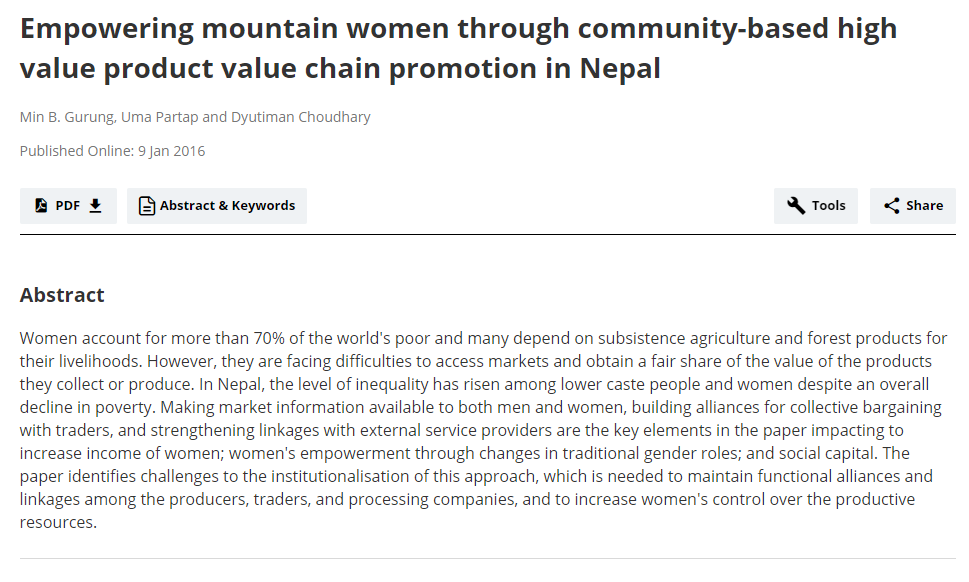Empowering mountain women through community-based high value product value chain promotion in Nepal
Abstract
Women account for more than 70% of the world's poor and many depend on subsistence agriculture and forest products for their livelihoods. However, they are facing difficulties to access markets and obtain a fair share of the value of the products they collect or produce. In Nepal, the level of inequality has risen among lower caste people and women despite an overall decline in poverty. Making market information available to both men and women, building alliances for collective bargaining with traders, and strengthening linkages with external service providers are the key elements in the paper impacting to increase income of women; women's empowerment through changes in traditional gender roles; and social capital. The paper identifies challenges to the institutionalisation of this approach, which is needed to maintain functional alliances and linkages among the producers, traders, and processing companies, and to increase women's control over the productive resources.

